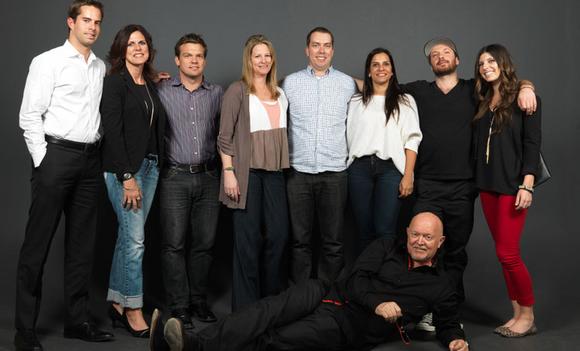2/20/14 Here is a story from last year. Sahaja is
Post# of 294


Democratique picks up fashion brand Sahaja— and is still shopping
The UpTake: Democratique, a fashion acquisition company that picked up indie knitwear brand Sahaja today, is part incubator, part investor. It asks new designers to cede majority ownership in their own labels in exchange for financial backing and expertise, plus a stake in a multi-label parent company.
Gordon McDougall has been an entrepreneur in the retail and consumer goods industry throughout his working life, and now at age 57, he can recognize a struggling fellow innovator when he sees one.
Four years ago, he co-founded a girls apparel brand Lexi-Luu Designs that he helped grow from startup to $1 million-a-year brand currently. Through a manufacturing facility that he bought in July 2013, also in L.A., he met other fashion startup founders who were using his factory for their made in the USA brands and were also looking to scale up their businesses.
“What I started to see were these amazing brands coming into my manufacturing facility with tremendous talent, but without the ability to get capital or the expertise they needed to grow,” says McDougall, the chief executive officer and director of Democratique. A new business idea dawned on him: to help made in the USA fashion brands scale up, incubator style, but to also create a parent company that would be an umbrella for these independent brands.
Today, Democratique announced its second acquisition, this time of knitwear brand Sahaja, which was founded five years ago by fashion industry veteran Serge Berliawsky. Sahaja, which is based in Los Angeles, makes cashmere, wool, and other knitted garments and sells them to upscale luxury retailers, including Barney’s New York, Maxfield LA, and other retailers in North America, Europe and Asia.
With help from Democratique, Sahaja is in the process of expanding its line of women’s and men’s sweaters, scarves, hats, blankets, and other knitted accessories across multiple local and international retailers. It has also come up with ways to lower its costs, increase margins and access a wider audience of buyers at a more diversified price point. It has been invited to exhibit at Coterie, an exclusive women’s fashion fair in New York City, held from February 23-25.
McDougall expects to acquire between six and eight more labels this year with a focus on three niche areas: knitwear, leisurewear for women, and plus-size apparel. “We currently have almost 30 small emerging companies that we’re looking to as possible acquisitions," he says.
Through Democratique, he offers these independent brands the funding and the expertise that they need to scale, but there’s a price to pay—one that not every designer would go for. Democratique acquires a majority stake (anywhere from 50.1 percent to 100 percent of the company) of the label, and its owner, in turn, gets a share of at least a 10 percent of Democratique, which is publicly traded under the name Bitzio (OTCQB: BTZO), on a stock exchange known as OTCQB which is a place for smaller or early-stage companies. The founders stay on and run their brands independently wherever they are based. As their own label and the other Democratique labels grow, they reap the rewards.
The idea is that by working under one umbrella, these indie designers benefit from the cost-savings of being part of a larger company and from each other’s success.
Three months ago, Democratique acquired its first fashion company, E-Motion Apparel, for which it led a complete rebranding effort, assembled a team of sales reps, and defined distribution channels. It initially had $300,000 a year in revenues, but the company now has $1 million in back orders, with Democratique helping it bring in new channels of distribution, including MGM Grand, which is carrying it in all of its resorts, McDougall says. The founder of the company, Marilu Brassington, who was a CPA and auditor turned designer, is now chief financial officer of Democratique. Berliawsky, meanwhile, is chief creative officer at Democratique.
Each owns about 10 percent in Democratique’s parent company Bitzio. Not every acquisition will lead to the designers and founders becoming part of the parent company, McDougall says, but the two joined since the company is still very much in its early stages and needed people with their expertise.
The company name, in McDougall's view, reflects the approach. Global apparel is a $1 trillion industry, and U.S. consumers are the ones buying about a quarter of that at $250 billion a year. So why shouldn't American entrepreneurs be able to profit from their shopping prowess?
"We think there's a real opportunity here to create jobs in America, to help support designers and fashion entrepreneurs," he says.
Teresa Novellino
Upstart Business Journal Entrepreneurs & Enterprises Editor
 (0)
(0) (0)
(0)